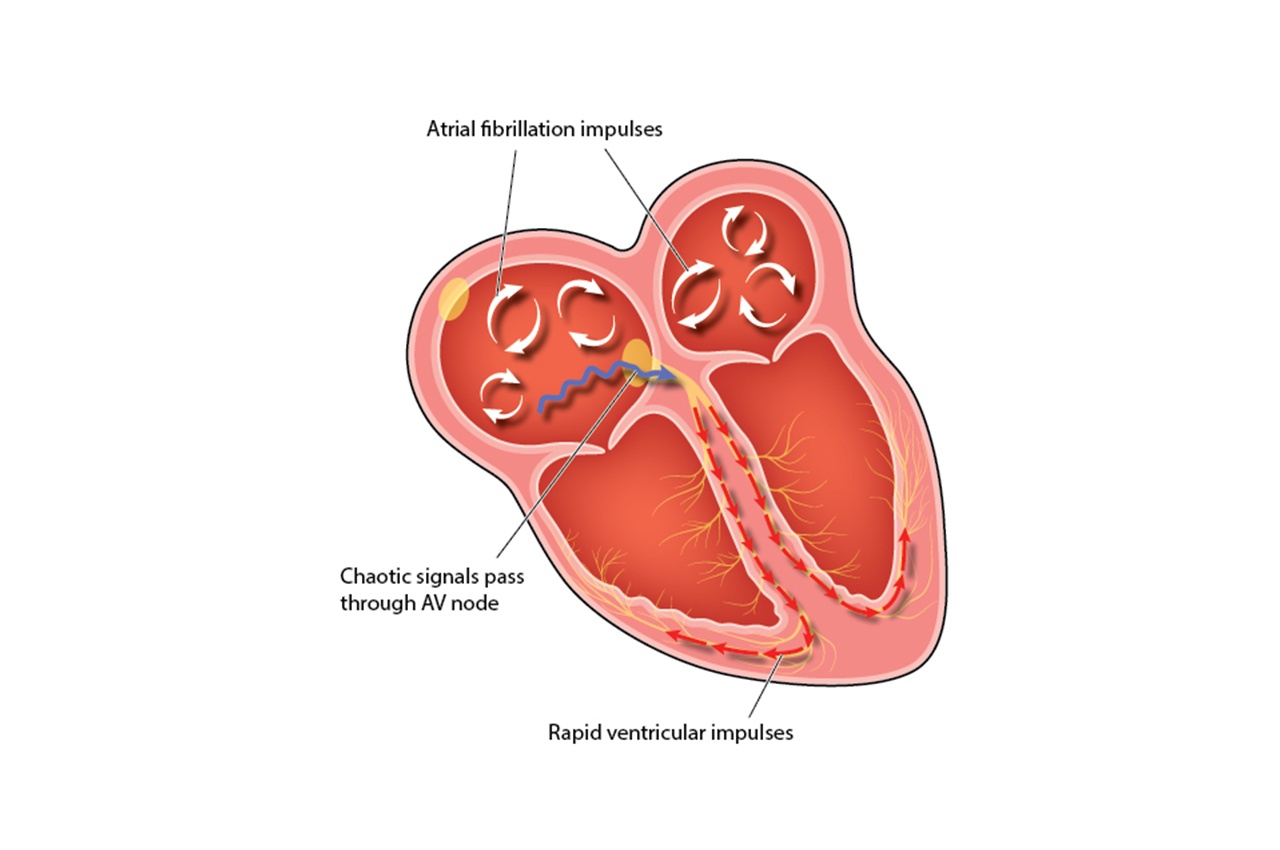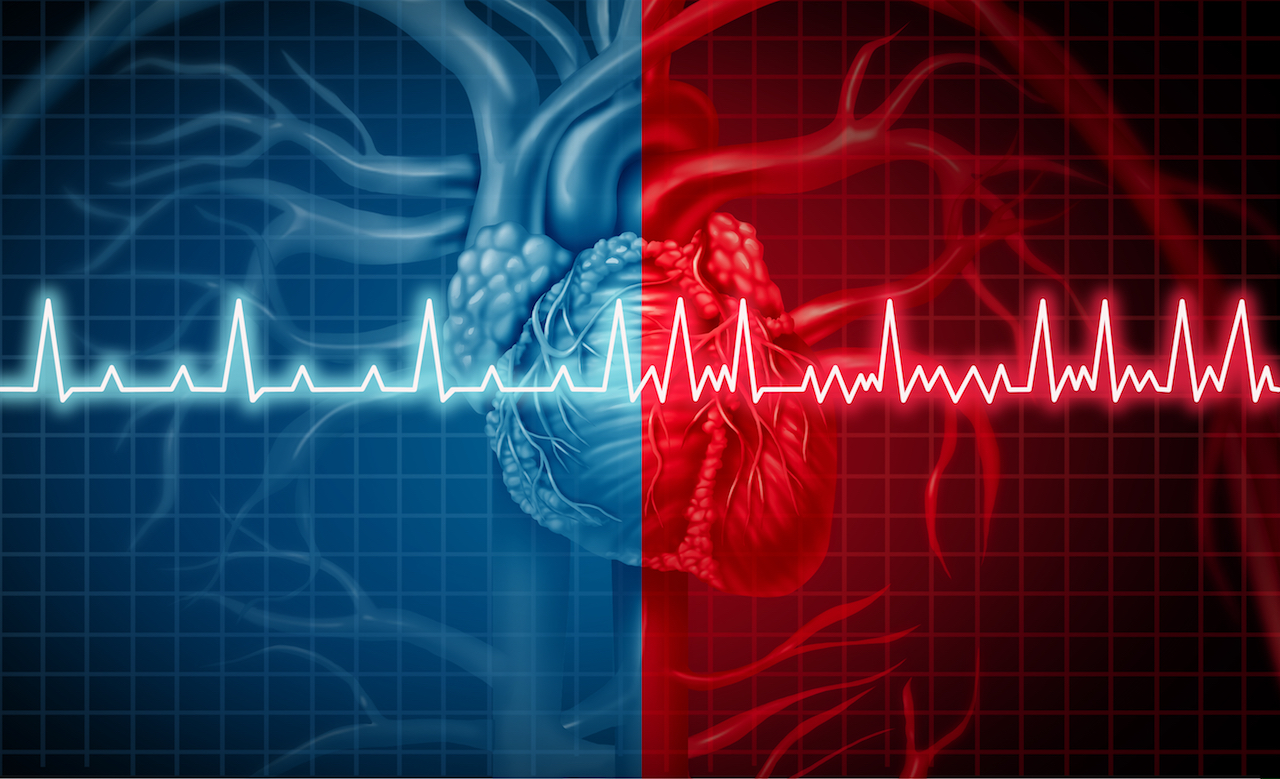Does your heart beat so fast that it feels like it’s banging against your chest wall; especially if you’re carrying stuff or bending down?
You may have atrial fibrillation.
Atrial fibrillation (also called AFib or AF) is a quivering or irregular heartbeat. Changes in your heart rhythm lead to stroke, blood clots, heart failure and other heart-related complications.
According to the AME Medical Journal, there has been an increase in the global prevalence of atrial fibrillation in all regions of the world. In the European Union, it is estimated that AFib will increase from eight million adults over 55 years in 2010, to 17 million by 2060.
The rhythm of the heartbeat
Usually, your heart contracts and relaxes to a regular beat. With atrial fibrillation, the upper chambers of the heart (the atria) beat irregularly to move blood into the ventricles (the cavity or chamber that can be filled with fluid).
When this happens, the lower chambers don’t fill completely and therefore can’t pump enough blood to the lungs and body. This can result in fatigue or dizziness, heart palpitations or chest pain. Blood may also pool in the heart, which can increase your risk of having a stroke or other complications.
Symptoms
Now and then, people with AFib have no symptoms and their condition is only detectable from a physical exam. Others may experience symptoms such as:
- Rapid and irregular heartbeat.
- General fatigue.
- Dizziness.
- Weakness.
- Shortness of breath and anxiety.
- Fluttering or “thumping” in the chest.
- Faintness or confusion.
- Fatigue when exercising.
- Sweating.
- Chest pain or pressure.
Diagnosis
To diagnose atrial fibrillation, your doctor may check for symptoms, ask for your medical history, and do a physical exam. In addition, you may have tests like:
Blood tests: This will help check thyroid problems or other substances in your blood that could lead to atrial fibrillation.
Stress test: This involves running tests on your heart while you’re exercising.
Chest X-ray: X-ray images will help your doctor see the condition of your lungs and heart.
Treatment
The general goal to treat AFib is to:
- Reset the rhythm or control the rate.
- Prevent blood clots.
- Decrease the risk of strokes.
With the help of your doctor, you’ll be able choose the most appropriate option. This will depend on whether you have other problems with your heart and if you’re able to take medication that can control your heart rhythm. In some cases, you may need more invasive treatment, like medical procedures using catheters or surgery.
With some people, an underlying condition like a thyroid disorder may trigger atrial fibrillation. Treating the condition causing atrial fibrillation may help relieve your heart rhythm problems.
Prevention
It’s important to live a heart-healthy lifestyle to reduce your risk of heart disease and prevent atrial fibrillation. This includes:
- Eating a heart-healthy diet.
- Avoiding smoking.
- Exercising more often.
- Limiting or avoiding caffeine and alcohol.
- Reducing stress (intense stress and anger can cause heart rhythm problems).
- Using over-the-counter medications with caution, as some cold and cough medications have stimulants that may trigger a rapid heartbeat.
- Maintaining a healthy weight.
References:
- https://www.webmd.com/heart-disease/atrial-fibrillation/default.htm
- http://amj.amegroups.com/article/view/4196/4922
- https://www.heart.org/en/health-topics/atrial-fibrillation/what-is-atrial-fibrillation-afib-or-af
- https://www.mayoclinic.org/diseases-conditions/atrial-fibrillation/diagnosis-treatment/drc-20350630
- https://www.nhlbi.nih.gov/health-topics/atrial-fibrillation


